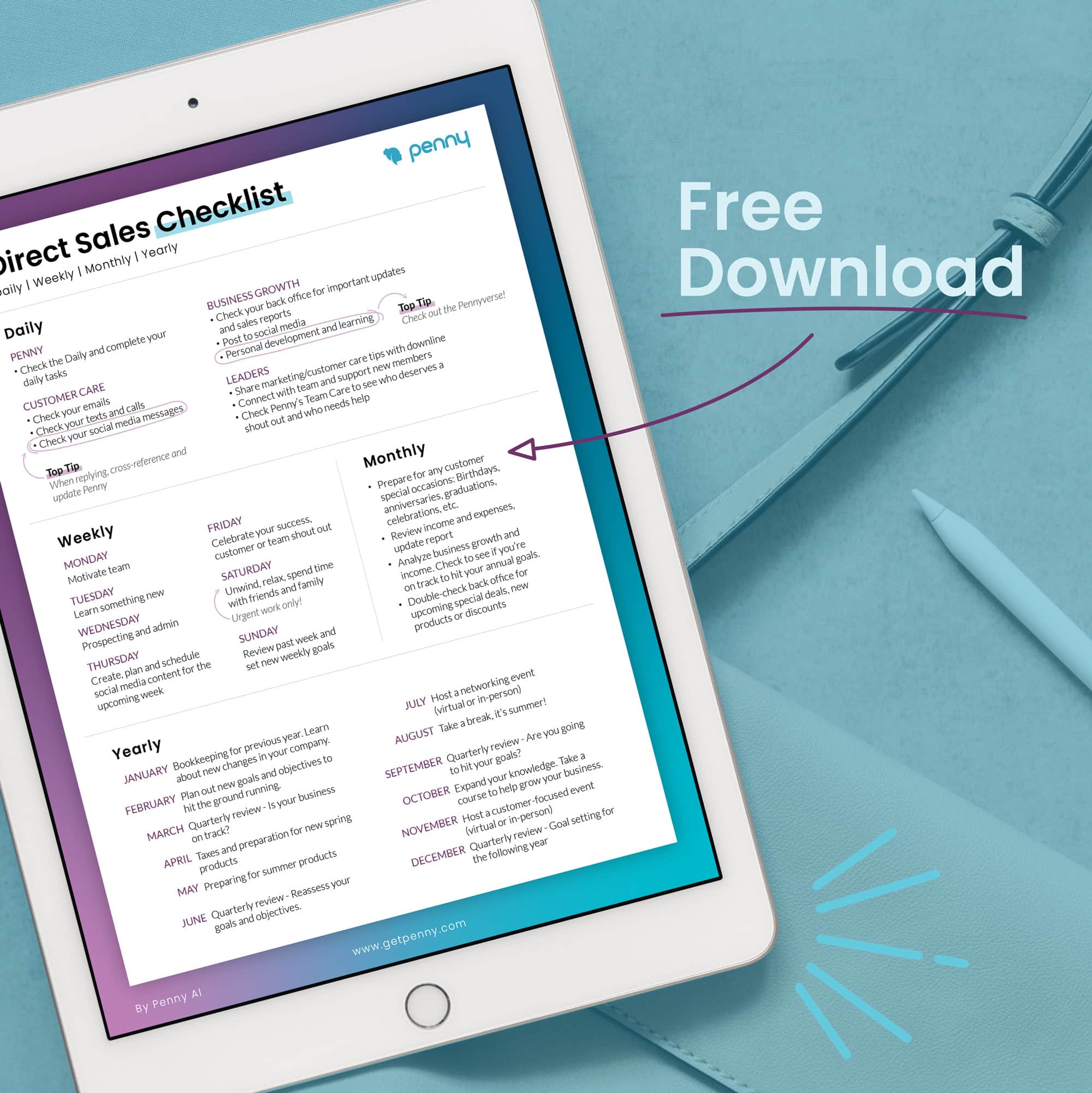Social Selling Checklist | Daily, Weekly, Monthly

Do you ever sit down and wonder, what am I supposed to do next? Running your own social selling business is amazing because you’re in charge but… it also means there is no one telling you what to do.
If you’re just getting started or if you’re looking to add some structure to how you’re managing your business check out this checklist of things you should be doing daily, weekly, monthly and even yearly to keep you accountable and your business on track.
Download the Social Selling Checklist!
Daily
These are the things you can try to do every day you're working your business.
- Check the Daily and complete your daily tasks
CUSTOMER CARE
- Check your emails
- Check your texts and calls
- Check your social media messages
(TOP TIP: When replying cross-reference and update Penny.)
BUSINESS GROWTH
- Check your back office for important updates and sales reports
- Post to social media
- Personal development and learning (Check out the Pennyverse!)
LEADERS
- Share marketing/customer care tip with downline
- Connect with team and support new members
- Check Penny’s Team Care to see who deserves a shout out and who needs help
Looking to build your team? Read How to Start Building a Team

Have you heard about Penny Place? The Facebook Community for Penny app users looking for tips on how to grow their business with Penny. Join now!
Weekly
If you work your business a couple days a week then you can alternate different activities each week!
Monday: Motivate team
Tuesday: Learn something new
Wednesday: Prospecting and admin
Thursday: Create, plan and schedule social media content for the upcoming week
Friday: Celebrate your success, customer/Team Shout Out
Saturday: Unwind, relax, spend time with friends and family (Urgent work only!)
Sunday: Review past week and set new weekly goals
Need inspiration on what to post on social media? Check out 30 Social Prompts for Network Marketers
Monthly
- Prepare for any customer special occasions: Birthdays, anniversaries, graduations, celebrations, weddings etc.
- Review income and expenses, update report
- Analyze business growth and income. (Check to see if you’re on track to hit your annual goals)
- Double-check back office for upcoming special deals, new products or discounts
Yearly
Plot out the annual events and national holidays in your location and your target customer regions and add them to your calendar so you can prep in advance.
January: Bookkeeping for previous year. Learn about new changes in your company.
February: Plan out new goals and objectives to hit the ground running.
March: Quarterly review - Is your business on track?
April: Taxes and preparation for new spring products
May: Preparing for summer products
June: Quarterly review - Reassess your goals and objectives.
July: Host a networking event (virtual or in-person)
August: Take a break, it’s summer!
September: Quarterly review - Are you going to hit your goals?
October: Expand your knowledge. Take a course to help grow your business.
November: Host a customer-focused event (virtual or in-person)
December: Quarterly review - Goal setting for the following year

Take control of the activities you need to do daily, weekly, monthly and annually to run a successful business.


Social Sharing




